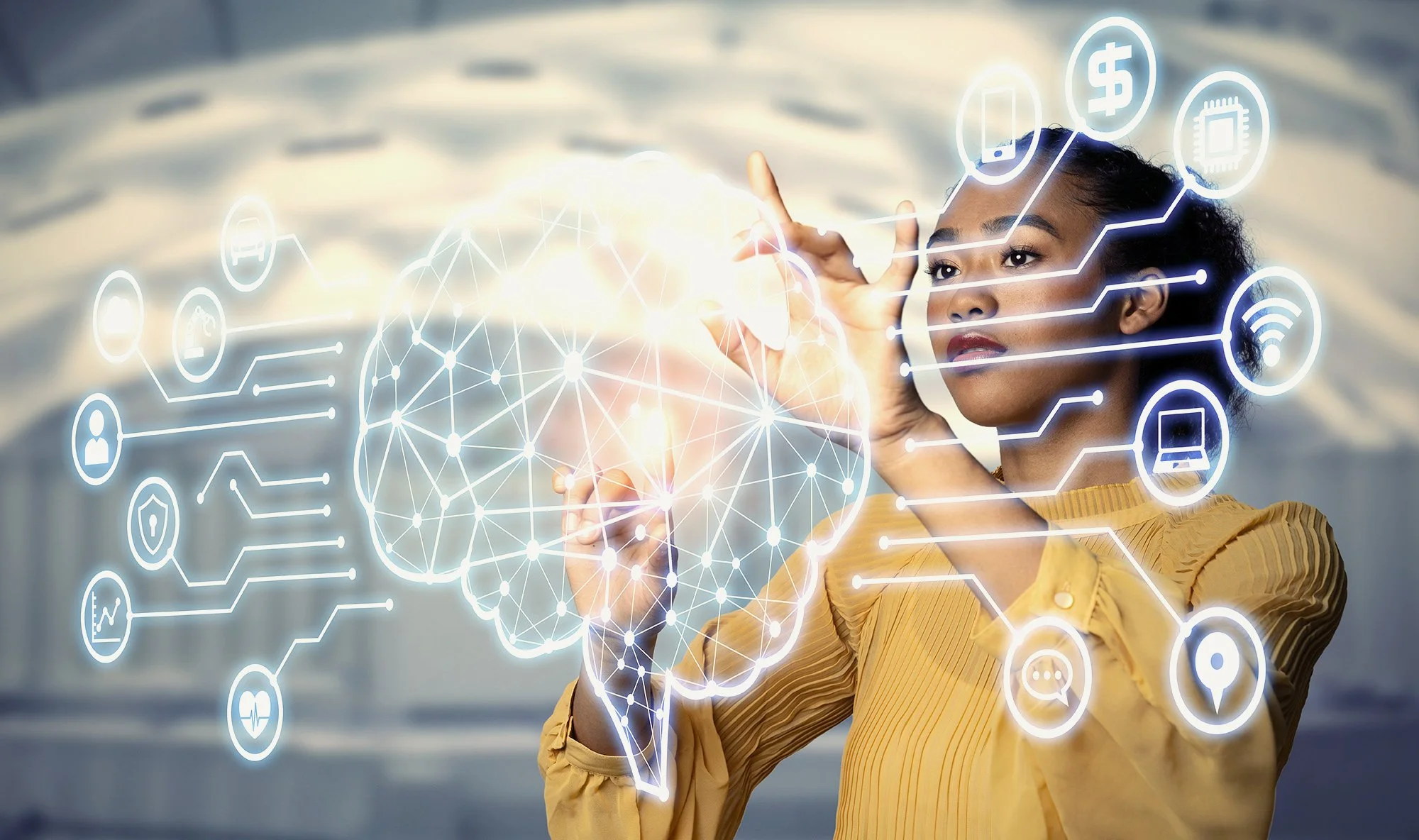AI & Work Culture
How the AI Revolution is Transforming Organizational Culture
Artificial intelligence (AI) is no longer confined to science fiction; it's a reality rapidly reshaping industries and organizational cultures. In this blog post, we'll explore AI's profound impact on organizational culture, the different types of AI, and how businesses can navigate this transformative journey.
What is AI?
Artificial intelligence is the field of computer science dedicated to enabling machines to emulate human intelligence. It equips machines with the ability to learn, problem-solve, reason, and process language, allowing them to perform tasks that previously required human cognition.
Generative AI vs. Non-Generative AI
Generative AI, exemplified by models like ChatGPT, can create new content, including text, images, audio, and videos. On the other hand, non-generative AI focuses on tasks such as classification, recognition, and prediction, making it less creative but highly efficient in specific domains.
Machine Learning vs. Deep Learning
Machine learning empowers computers to learn from data and make predictions. In the context of human resources (HR), it's used for tasks like anomaly detection, background verification, and content personalization. Deep learning, a subset of machine learning, involves training neural networks on vast datasets and is applied in HR for image and video recognition, speech recognition, chatbots, and recommendation engines.
The Business Case of AI in HR
According to the Spiceworks article, The Beginner’s Guide to AI in HR, implementing AI in HR can revolutionize various aspects of talent management within the workforce:
Employee Experience: AI-driven personalization can enhance employee experiences by tailoring HR services to individual needs.
Data-Driven Decision Making: AI enables data-driven insights, aiding HR leaders in making informed decisions.
Intelligent Automation: Routine HR tasks can be automated, freeing up HR professionals for more strategic activities.
The Importance of Culture
To successfully integrate AI into an organization, the right culture is crucial. Without the proper cultural foundation, embracing AI becomes challenging. According to the Harvard Business Review article, 3 Steps to Prepare Your Culture for AI, organizations must build a culture that embraces continuous learning, failure, change management, innovation, and digital mindsets.
“To successfully integrate AI into an organization, the right culture is crucial. Organizations must build a culture that embraces continuous learning, failure, change management, innovation, and digital mindsets.”
Organizations of the Future
Organizations that embrace AI will exhibit the following cultural characteristics:
Embrace Continuous Learning: The workforce will continue developing skills to keep pace with AI advancements.
Implement Change Management: Companies will adopt change management strategies to effectively navigate AI's transformative impact.
Adopt Digital Mindsets: Encouraging employees to think innovatively and embrace digital solutions will become the norm.
Foster Psychological Safety: A culture of psychological safety will be promoted, allowing employees to embrace flexibility and experimentation.
Choose Curiosity Over Fear: Encourage employees to experiment with AI tools and explore new working methods. Fear of AI replacing jobs can be mitigated through education and firsthand experience.
Embrace Failure: In an AI-powered world, experimentation is key. Encourage a test-and-learn strategy to discover how AI can best serve the organization.
Become Learn-It-Alls: The value will shift from having all the answers to asking the right questions. Cultivate analytical thinkers and problem-solvers who can reason over AI-generated content.
Organizations of the Past
Organizations that resist AI often exhibit the following characteristics and risk falling behind in an AI-driven world:
Siloed Implementation: AI implementation is handed off to specific technology departments and COEs instead of the workforce embracing AI as a systems-wide change.
Resistance to Learning: Minimal opportunities for the workforce to safely learn and experiment with AI with the proper guidance from champions and AI industry experts.
Fear of Failure: Not enough psychological safety can cause the culture to fear failure and move forward instead of embracing the unknown.
Insufficient Leadership Buy-In: The culture embraces change with resistance and not enough buy-in support from the entire workforce to implement AI.
The Importance of Reskilling the Workforce
Reskilling is not just an option; it is an imperative. Every leader and manager must take responsibility for reskilling their teams. It is not a one-size-fits-all process but rather a change management initiative that involves understanding supply and demand, recruiting, shaping middle management mindsets, building skills in the flow of work, and integrating reskilled employees effectively. The good news is that employees are willing to reskill when it makes sense, and a collaborative effort is key to success.
Risks of Implementing AI
Implementing AI comes with risks and must be addressed to ensure responsible AI use. Some of the challenges include:
Bias: AI tools may inadvertently perpetuate stereotypes if not designed with inclusivity in mind.
Privacy Leaks: Human error and bottlenecks can lead to data breaches if not adequately monitored.
Steep Learning Curves: The sheer volume of information about AI can overwhelm employees.
Potential for Generating False Information: Overreliance on AI can lead to an automation bias, causing errors and misinformation.
AI is here to stay, and its impact on organizational culture is undeniable. While there is ambiguity about how to leverage AI, one thing is clear: organizations and talent that embrace AI will stay ahead of the curve. AI isn't here to replace jobs but to augment and enhance them, driving innovation, efficiency, and better decision-making. As we move forward, the organizations that foster a culture of curiosity, learning, and adaptability will thrive in the AI-powered future. Embrace the change, and let AI be a catalyst for progress in your organization.




